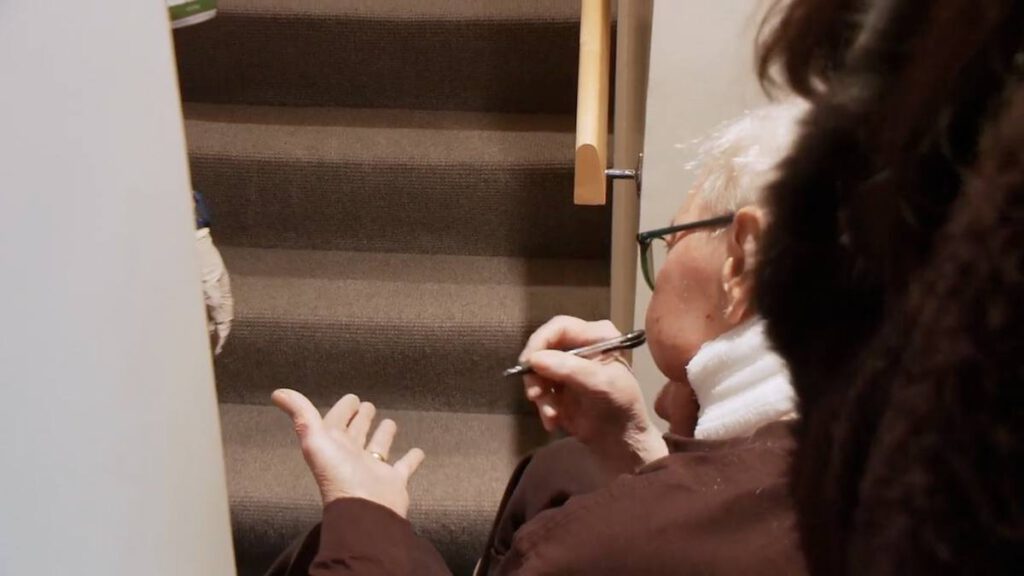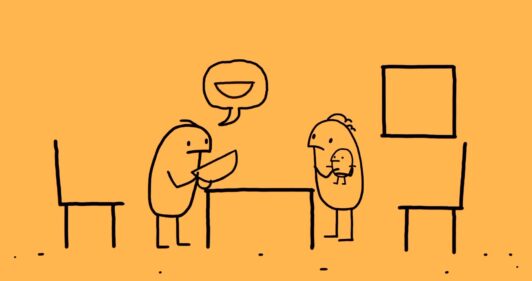**Spoilers ahead**
"We all are born with a certain package. We are who we are: where we were born, who we were born as, how we were raised. We're kind of stuck inside that person, and the purpose of civilization and growth is to be able to reach out and empathize a little bit with other people. And for me, the movies are like a machine that generates empathy. It lets you understand a little bit more about different hopes, aspirations, dreams and fears. It helps us to identify with the people who are sharing this journey with us."
These are the first words we hear Roger Ebert say in "Life Itself," telling us very plainly that this is a story we're going to feel.
I came to this story with baggage. Since last April, I've carried the loss of Roger, my friend and mentor. It was admittedly getting lighter until my cousin passed away from lymphoma not two months ago.
Roger's illness is something I experience from a very safe distance. Like many people, I wasn't aware that his cancer had returned until he announced it in his last blog post, "A Leave of Presence." I thought we had more time with him, but the next day, he was gone. I didn't know what the last few months of his life were like. I knew what it was that took him, but for me, cancer still existed in the abstract.
I'd never seen cancer up close until I visited my cousin in a hospital last August. I hardly recognized her, partly because we didn't know each other very well, mostly because of what cancer does to a person. In the brief 4 months she had left, she became the center of my life.
My freelance schedule afforded me some flexibility, so I was able to visit my cousin at the hospital often. When we found out that an expensive treatment might save her, I started an Indiegogo campaign to raise the funds she needed to get it. When that treatment didn't work, I helped her draft a will. When she breathed her last breath, myself and the friends and family who were also there alerted the nurses, gave my cousin one last hug, and cleared the hospital room of all the knick-knacks we collected to get her used to living in a place she hated.
For a while, I was angry that nothing had prepared me for the reality of cancer. There wasn't a single movie or TV show that I could recall where a person had trouble walking because radiation or chemo had wasted away their muscle tissue. They make actors wear bald caps or shave their heads, but they can't seem to reproduce the pasty, colorless skin tone that comes from dying slowly. They can't script the absolute nonsense that comes out of a person's mouth when they're pumped full of morphine. They don't tell you that even when a person goes into remission, the road to health is still far off.
I went into "Life Itself" knowing nothing about Roger's struggle with cancer. I came out of it with a heart-wrenching déjà-vu.
Some have already talked about the scenes where fluids are suctioned out of Roger's gaping throat. His discomfort and pain are so palpable that I had to look away. It's rare to get that close to a genuine medical procedure on film. We also see the progressive deterioration of his body: his face becomes swollen from treatment; his skin gets three shades paler; he slumps more.
But there's more to sickness than its physical manifestations. There are grandchildren saving their tears for when they're not in Roger's presence, because they know he'll spend precious energy trying to comfort them. There are the bouquets of flowers that serve to make the hospital room feel normal or at least more colorful. There's Chaz's reluctance to speak about the return of Roger's cancer because there are still so many unknowns; she eventually gives in because the road ahead is nothing but unknowns. There's the historically tireless Roger getting so beat, he can barely muster two-word emails.
At one point, Roger gets annoyed at not being able to get up the stairs the way he wants to, and furiously gestures for his notepad. Later, Chaz sums up what's at the root of his frustration: he's trapped in his body.
Roger was ready to die when he did. He told us as much in several blog posts, no doubt because he sensed it was coming. When it finally happens, Chaz describes her stages, which, if our experiences were anything alike, transpire in a matter of seconds: disbelief, terror, serenity.
What surprised me most about "Life Itself" was how much closer it made me feel to Chaz. It wasn't anything she said; it's the way she tended to the flowers in the hospital room.
Olivia Collette is a Montreal-based journalist. Read her article about her cousin's illness, "What my cousin's cancer taught me"












